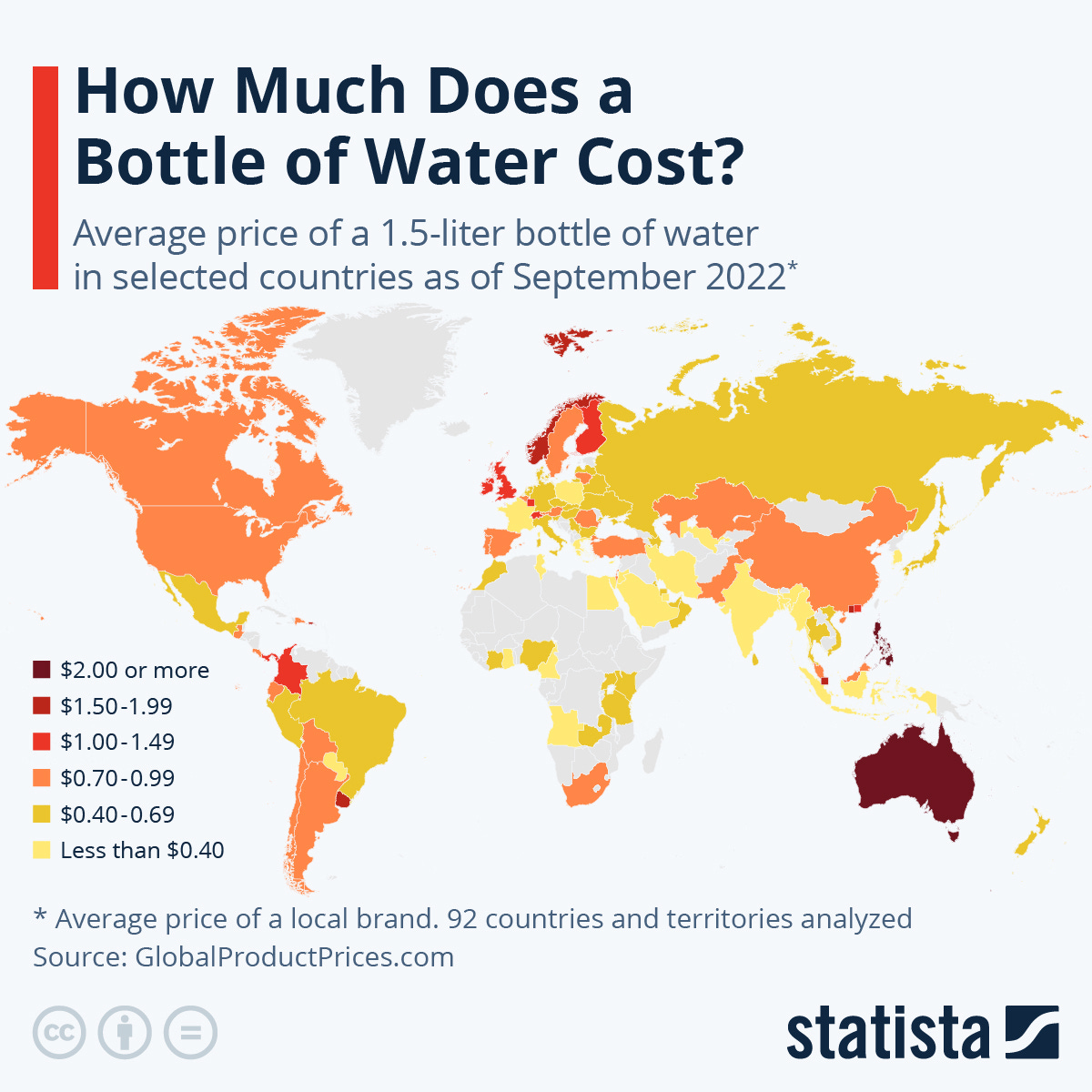Water is something so essential to life, but yet another thing we have commoditized. The topic of water is growing to become important in geopolitical and existential conversations.
Freshwater Access
There is no shortage of water itself on planet Earth, however freshwater is what is useful to human beings. Therefore, we rely on rivers and lakes for all the water we use. The problem nowadays is that dry places are getting drier, all the while we are using more water; this is leading to an inevitable decline in water supplies.
Water Diversion
Desalination
The salty water in the ocean must be desalinated to become anything useful and this process is very energy intensive. Unfortunately we do not yet have fusion reactors so energy tends to cost a lot! Good news is that we are developing cheaper better ways to desalinate water, but we will have to see whether these technologies can scale.
Freshwater Eutrophication
Water Pollution
Micro-Geoengineering
Practice for terraforming.
Tangent: Sulfur Emissions
Turns out we have been doing geoengineering for awhile now. Cargo tankers used to emit a lot of sulfur emissions because of the particular fuel they used. Recently we have started to phase out these fuels for sulfur free alternatives and as a result we have discovered these sulfur emissions have been deflecting some solar radiation. This switch to cleaner tanker fuel has inadvertently warmed the planet more and left us the important takeaway that geoengineering is already happening. Many have argued that geoengineering is too dangerous or unethical, but this perspective can now be approached with some skepticism.
Land Reclamation
Shoreline Protection
Holistic Land Management
We are seeing a growing movement of holistic land management technique such as permaculture where we utilize nature to enhance our environments. Water can be retained in the landscape through trees/vegetation and reservoirs (lakes, ponds, swamps, flooded forests, aquifers). This results in a decrease in ambient temperature, resistance to wildfires, increased biodiversity, and more! There are so many things we can learn from the wonders of our natural world.
Stormwater & Grey Water Management
Many cities have antiquated infrastructures that manage stormwater and waste water in unproductive ways: such as mixing them together and pumping it all to a treatment facility that has a limited capacity. We have now learned to design our cities better, but it takes a lot of time and money to update infrastructure. Hopefully we can be more proactive about the ways we design our cities including their relationship with water/nature.
Hydrothermal Carbonization
Turning waste into useful resources.




That is a lot of youtube videos